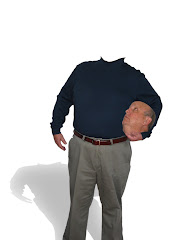Chords can be played with one hand or two, but complex chords sound much fuller if voiced with two hands.
Friday, July 18, 2008
Piano Tip: How to turn a chord into a fill
You can break up a piano chord in a variety of ways to turn a chord into an interesting filler for your songs.
Piano runs & fills - How to create them
Piano players can create runs and fills to make songs sound more exciting and interesting through the use of tremolo-fired runs.
Piano runs & fills - How to create them
Piano players can create runs and fills to make songs sound more exciting and interesting through the use of tremolo-fired runs.
Find a piano teacher who teaches chords!
When selecting a piano teacher, be sure that he or she knows music theory and how to use chords.
Piano Styles - Block Chords
Piano styles are many and varied, but one way to get a big sound is to use block chord styles.
Piano Techniques: Walkups & Walkdowns
Piano techniques include a walkup and a walkdown from the tonic to the dominant.
Piano Tips: Make Music Box Sounds
You can make wonderful sounds on the piano like a music box by playing high on the keyboard and using something like an Alberti bass in your left hand while playing the melody in your right hand.
The Amazing Diminished 7th Chord
Diminished 7th chords are magical, because you can do so many different things with them, and there are only 3, so you can learn them fast!
Piano chords: Diminished 7th Chords
Include short, descriptive, keyword-loaded copy that begins with your domain and includes a call to action or offer that a user will read and want to visit your web site. You may wish to include your phone number. 200 characters or less is the ideal length that ensures your submission will reach the maximum number of sites. Longer text is ok but may cause failed submissions for some sites.
What is an Overture?
An overture is, simply, an introduction to a piece of music. Beyond that, its definition can become slightly unclear; what exactly constitutes an overture? Since it has no strict rules and can be found in musical theater, orchestral composition and choral ensembles, then it's possible that any introduction could be considered an overture, even the beginnings of rock songs. But that isn't necessarily the case; an overture is typically the introduction to a much longer piece of music or musical theater (especially opera) and will sometimes be in a stark contrast to the remainder of the work. Some sorts of overture, usually found in modern musicals, will act as a simple preview of the songs to be introduced within the play; it almost becomes a cut-down medley at this point. And though this may be the most common use of the overture today, it's not the most classic or traditional.
The overture got its start in 17th century French opera, most notably the works of Lully. This beginning overture form was far stricter than the form has ever been since; it involved a series of slow dotted-note rhythms intertwining with faster parts then moving back again. This type of overture was often energetic and lively, almost danceable in places. But as opera evolved to include sonata form, this type of overture became somewhat obsolete. It shifted to include the elements of sonata form, subject to somewhat experimental notions of various composers, and eventually became an art in its own right. The symphonic overture, an overture devoid of any following dramatic work, followed the same basic ideas found in the French overture, without making the dotted-note rhythms a necessity; it adhered to the slow-quick-slow pattern found in those original compositions. The rise of symphonic overture forced operatic overture into a less structured form, allowing it to exist as simply an important (and often contrasting) element within the piece, one that introduced the entire song to an awaiting audience.
_____________________________
The overture got its start in 17th century French opera, most notably the works of Lully. This beginning overture form was far stricter than the form has ever been since; it involved a series of slow dotted-note rhythms intertwining with faster parts then moving back again. This type of overture was often energetic and lively, almost danceable in places. But as opera evolved to include sonata form, this type of overture became somewhat obsolete. It shifted to include the elements of sonata form, subject to somewhat experimental notions of various composers, and eventually became an art in its own right. The symphonic overture, an overture devoid of any following dramatic work, followed the same basic ideas found in the French overture, without making the dotted-note rhythms a necessity; it adhered to the slow-quick-slow pattern found in those original compositions. The rise of symphonic overture forced operatic overture into a less structured form, allowing it to exist as simply an important (and often contrasting) element within the piece, one that introduced the entire song to an awaiting audience.
_____________________________
Subscribe to:
Comments (Atom)

